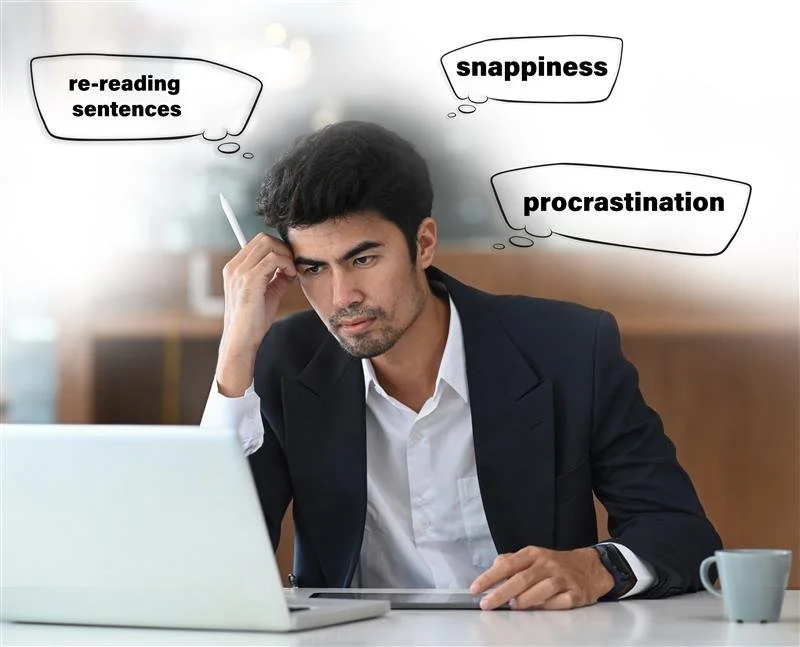COGNITIVE FATIGUE AND WHY DECISIONS FEEL HARDER LATELY
Ever stared at your screen for 10 minutes trying to decide what to eat for lunch? Or scrolled through Netflix endlessly only to give up and watch nothing?
You’re not being dramatic. You’re probably just mentally tired. Not the yawning, sleepy kind of tired, the brain-is-over-it kind. That’s called cognitive fatigue, and it's more common than we realise.
So, what is cognitive fatigue?
Cognitive fatigue is what happens when your brain has been running on overdrive for too long. It’s like too many tabs open in your browser, things slow down, freeze, or stop working altogether.
It’s different from physical exhaustion. You may feel totally fine physically, but mentally? Foggy, unfocused, and weirdly annoyed at things that wouldn’t usually bother you.
Making choices, even small ones, feels oddly heavy.
You’re not imagining it.
Why does this feel worse now?
There’s a lot more coming at us than we’re built for. Notifications, constant updates, fast-paced workdays, endless to-do lists, managing households, relationships, and...ourselves. The pressure to respond, decide, plan, and process all the time, adds up.
Throw in global uncertainty, burnout, and the emotional load we carry quietly, and it's no surprise our brains are waving the white flag.
Also, let’s be honest, how many of us are really resting when we rest?
Even our downtime is filled with decisions: Which show to watch? What to cook? Should I finally reply to that message?
What does cognitive fatigue actually look like?
Here’s what it can feel like:
You re-read the same sentence five times
You feel weirdly snappy or sensitive
You procrastinate simple tasks
You say “I don’t care, anything’s fine” more than usual
Your brain goes blank in the middle of a conversation
You can’t make a choice, even about something as small as what to wear
Basically, your decision-making battery is drained. And without a recharge, even small things feel disproportionately difficult.
What helps?
Good news! You don’t need a total life overhaul. Small, intentional shifts can make a big difference.
1. Give your brain an actual break
Scrolling Instagram isn’t a break, it’s more input. Try staring out the window, taking a walk without your phone, or doing something repetitive like washing dishes or doodling. Let your mind breathe.
2. Simplify your choices
Reduce decision load where you can.
Eat the same breakfast for a week. Wear a ‘default’ outfit on low-energy days. Use to-do lists for the thinking part so your brain doesn’t have to juggle everything at once.
3. Take care of your basics
Water, food, rest. Not groundbreaking, but wildly underrated. Low blood sugar or dehydration can make your brain feel foggier than it needs to be.
4. Don’t shame yourself for being tired
Mental tiredness isn’t laziness. If your brain is struggling, it’s probably trying to protect you. Rest is productive too.
Remember, You’re only human!
If you’ve been feeling mentally scattered, stuck, or indecisive lately, you’re not alone. Cognitive fatigue is real, and it doesn’t mean you’re failing at life.
It means your mind’s been working really hard, and it’s asking for some room to slow down.
So next time your brain goes blank at a basic question like “What should we order?”, know this: You’re not doing anything wrong. You’re just tired, and that’s okay.
Author: Diya Ayappa
Diya is a trained counsellor and works as a content writer at Silver Oak Health. She is a passionate mental health advocate and is dedicated to creating awareness and fostering open conversations around mental well-being. Her blogs aim to empower individuals by addressing thought-provoking topics, providing personal insights, and making mental health a top priority for all.




